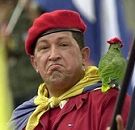“WESTERN UNION CONFIRMS THAT THAT THEIR MONEY  TRANSFER HAVE BEEN USE BY ILLEGAL OPERATIONS”
TRANSFER HAVE BEEN USE BY ILLEGAL OPERATIONS”
FROM THE - JOURNALS of Monte Friesner ~ Financial Crime Consultant for WANTED SA ~
Monday January 17, 2011 >
WANTED SA has learned this morning WESTERN UNION has conceded that its money transfer service has been used by people smugglers to fund their illegal operations.
The admission was made in a submission by the $13 billion company to the national financial intelligence unit, the Australian Transaction Reports and Analysis Centre (Austrac).
Western Union is among hundreds of banks and financial services businesses that law enforcement authorities believe are used by organized criminals to launder money, fund people smuggling and drug smuggling.
Austrac is proposing that the nearly 12,000 industry members - including casinos, bookmakers and financial planners, among others - pay for their own regulation.
The levy has not been set, but Austrac's chief executive, John Schmidt, said a cost-recovery impact statement would be published this month.
In its submission to Austrac, Western Union says it ''does not refute that money remittance services may have been used in order to fund people-smuggling activities''.
In the US last year, Western Union agreed to a $US94 million out-of-court settlement with Arizona State over the issue.
The terms of the settlement included $US50 million in grants to tackle money laundering and the smuggling of immigrants, drugs and guns along the US-Mexico border.
''No financial institution in the world, including Western Union, can categorically refute its services may have been used for illegal purposes,'' the company's Asia-Pacific spokeswoman, Pia De Lima, said.
''The money transfer industry is a highly regulated one and Western Union, and/or its agents, are likewise regulated in the countries where they operate to provide the service, including anti-money laundering regulations.''
She said the company strived to ''strike a fine balance between the need to make it easier for consumers to access money transfer, but at the same time deter those who wish to exploit it''.
''Our services are designed to make it really easy for people without bank accounts to send money overseas.
''Some new immigrants don't have access to bank services, or have jobs that don't let them access a banking institution,'' Ms De Lima said.
Many industry associations object to the levy altogether; some say it is too high; others say their businesses are neither targets of money launderers, nor liable to exploitation by terrorist groups or other criminals.
The cost-recovery impact statement will include some changes made in response to their complaints. Austrac received 64 written submissions from industry associations about the levy and how it will be calculated.
Under Austrac's proposal, the money-transfer industry will pay a total of $29.6 million a year.
The big banks will foot about $10.8 million of that.
Foreign and investment banks will pay $4.4 million and the large remittance networks - including global giants Western Union and Moneygram - will pay $1.3 million.
Stockbrokers, insurance brokers, superannuation fund trustees, pubs, clubs, currency dealers and precious metal traders may have to pay a levy, which is expected to come into operation this year, once legislation goes to Federal Parliament.
Under the proposal, the organizations that require the most regulatory oversight will pay the highest levy.
Financial services businesses must report all offshore transfers of cash, as well as domestic transfers, that are greater than $10,000.
All told, Australian banks report transfers worth an estimated $2.4 trillion a year; foreign and investment banks report an estimated $1.7 trillion worth of business.
Pubs and clubs - which are not in the business of transferring money overseas - are obliged to report suspicious transactions relating to jackpots that are won on poker machines.
The minister responsible for the reform, Home Affairs Minister Brendan O'Connor, said it was estimated that organized crime costs the community $15 billion a year.
''Tracking money flows, the lifeblood of organized crime, is critical,'' he said.
WANTED SA kindly thanks Westlaw, Arutz Sheva, Associated Press, and all the Parties, Press, Journalists, Law Enforcement and Securities forces who have contributed to this article and their sincere opinions and statements.
WANTED SA states that the facts and opinions stated in this article are those of the author and not those of WANTED SA. We do not warrant the accuracy of any of the facts and opinions stated in this article nor do we endorse them or accept any form of responsibility for the articles.









